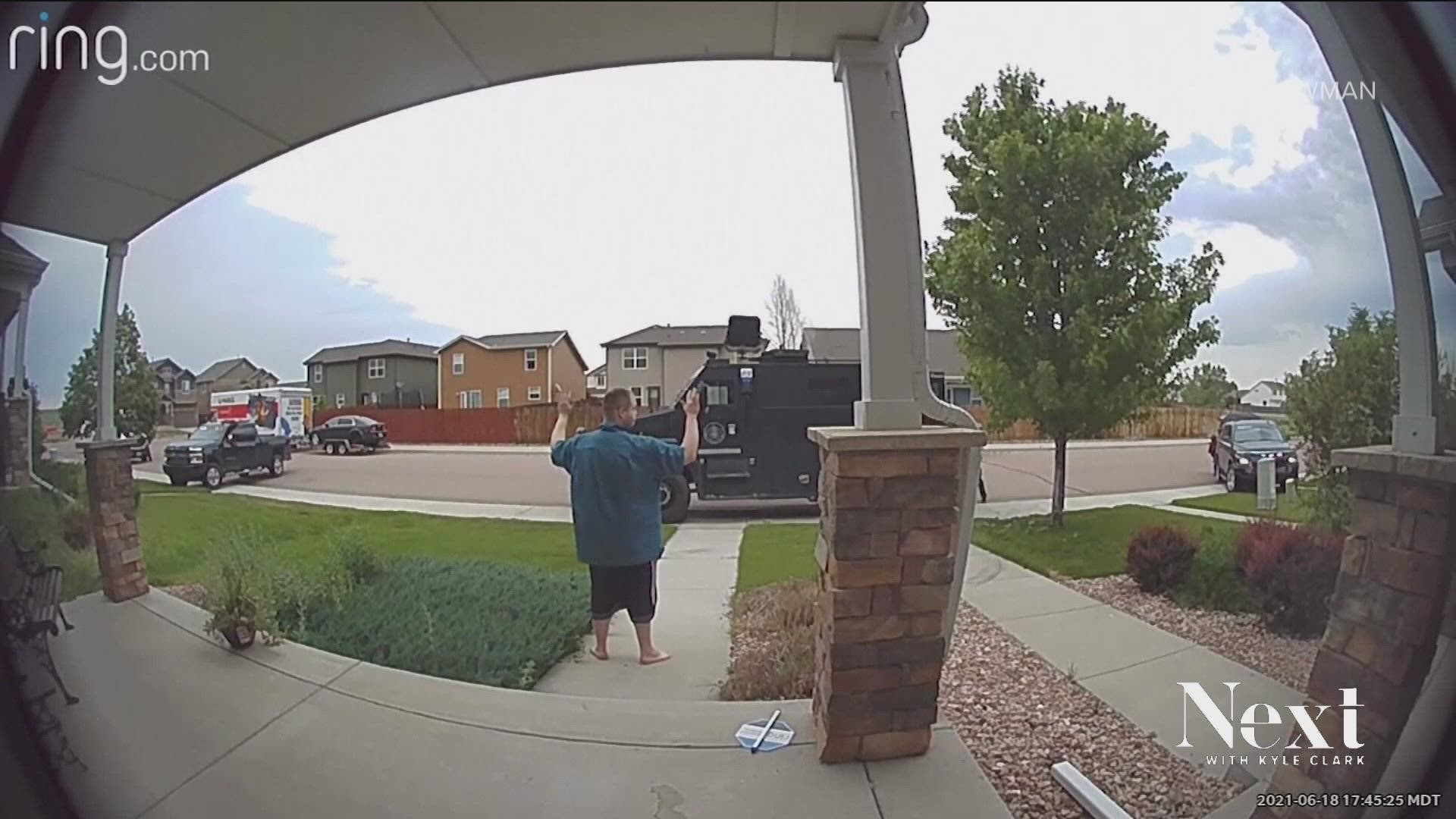COLORADO SPRINGS, Colo — Months before allegedly storming into a LGBTQ nightclub in Colorado Springs, killing five people and wounding 17 others, a judge warned how dangerous the suspect in the case could be.
The revelation of this early warning comes from transcripts of a 2021 court case recently unsealed after the November 19 shooting at Club Q. Nearly a year later, the same judge approved a defense motion to dismiss all charges in the case citing a failure to prosecute. The prosecution had trouble securing witnesses to testify in court.
The Associated Press was the first to report the judge’s comments in the previous case against the Club Q shooting suspect, Anderson Lee Aldrich.
Aldrich identifies as non-binary and uses they/them pronouns, according to their defense attorneys in the mass shooting case.
In 2021, they were arrested for a slew of charges, including kidnapping their grandparents and felony menacing. In a bond hearing on Aug. 5, 2021, Judge Robin Chittum warned the suspect needed to be treated for a mental illness and said “if we have a slip-and-fall and mess up on this one, it’s going to be so bad.”
“This is a tough one, folks, because I see the mental health piece here,” Chittum said the first time. “I see that this person sitting here with me in my courtroom is not the person who was caught up in all of this. Mr. Aldrich was a different person that day. But, holy cow, that was a scary person.”
The prosecutor in the case told the court that Aldrich had secured rounds of ammunition, handguns, magazines, body armor, an armored helmet and a gas mask.
“He has made comments that he wants to go out in a blaze,” Deputy District Attorney Younsung Park told the court. “He has made threats to blow up law enforcement.”
During that same hearing, the alleged Club Q shooter said they struggled with mental health issues their whole life.
“All throughout high school, I had been refusing to take care of myself,” the suspect said in court last year. “Refusing to be diagnosed with illness, and refusing to take medicine all simply because I selfishly wanted to join the military.”
Their mother, Laura Voepel, told Judge Chittum she was enrolling her adult child in therapy.
The suspect went on to tell the court that when they moved to Colorado, they got a medical marijuana card. As years went by, they said they began to use heroin.
The suspect also spoke about a fascination with guns that began when they were 16 and received their first firearm as a gift.
“This is a major pastime for me,” they said in court. “Going to school, working, and then relaxing at the shooting range. It was highly therapeutic for me, and was a great way to spend spare time.”
At the hearing, Chittum reduced Aldrich’s bond and suggested counseling and residential therapy.
Months later in October at a status hearing in the case, Aldrich’s attorney assured Chittum the suspect was in therapy and on medication.
“You got to hang in there with the meds,” Chittum told Aldrich. “I know.. it’s weird at first.”
“It’s an adjustment period for sure,” the suspect assured the court.
Eight months later, Chittum dismissed the case after the prosecution couldn’t secure any witnesses to testify against Aldrich. The prosecution attempted to subpoena their grandmother, Pamela Pullen, but a process server never served her a subpoena in person at her new home in Florida. They left it on her door instead, which the court determined wasn’t a valid service.
In a July 2022 hearing, Chittum mentioned issuing a warrant or stay warrant for the Pullens “so that they know they’ve got to come out and be here on the subpoena.” This course of action wasn’t pursued.
In the end, the attorney for the suspect’s grandmother told the court she was extremely ill and bedridden. With the knowledge that it was highly unlikely that the witnesses would show up for trial, the case was dismissed. The records were sealed a month later.
Chittum’s comments about her concerns are relatively rare that early in a criminal case, according to 9NEWS Legal Analyst Scott Robinson.
“To go on and talk about the danger that the individual poses to society...that’s unusual,” he said. “That judge had to be quite impressed with how dangerous the suspect was.”
But, he said, even if the judge was worried about the potential danger, there wasn’t much she could do.
“Judges in Colorado don’t have the power to issue a red flag order on their own,” Robinson said.
Professor Ian Farrell of the University of Denver’s Sturm College of Law expressed surprise at how the 2021 case was handled.
“Even though they were unable to secure the cooperation of the primary victims, namely Mr. Aldridge's grandparents, which may have made it difficult for them to pursue specific charges with regard to menacing the grandparents and so forth, there were other potential charges that the prosecutors could have pursued,” Farrell said.
The decision for whether or not to prosecute, Farrell said, resides with the prosecutor, which in this case was the El Paso County District Attorney their office.
However, Farrell adds that a judge could appoint special prosecutors to do so in extreme cases.
"A judge can only do that in circumstances of 'abuse of discretion' by the prosecutor. And that usually means, say, bad faith,” he explained in part. “I don’t think this falls within that area.”
Overall, Farrell believes this case goes back to the discussion around Colorado’s “Red Flag” laws.
“I think this is an example of why preventative measures may often be more successful than putting people in prison after they've committed the crime,” he said.
Right now, only law enforcement officers and close associates, like family members and housemates, can petition a judge for what’s known as an “extreme risk protection order,” which allows for the confiscation of guns for as little as 14 days and as long as a year.
District attorneys, however, do not have that power in the state.
The Colorado District Attorney’s Council briefly discussed this topic at a regularly scheduled governing board meeting Friday, but it was not an agenda item, a spokesperson for the council explained.
“DAs agreed that CDAC would be interested in being part of any upcoming discussion related to proposed legislation if and when we become aware of a legislator running a bill on the issue,” they wrote in an email. “The DAs agreed that it is premature to consider any unified position on the expansion of the current ERPO law until there is a proposed idea to consider from a lawmaker.”
When asked for comment about the release of the transcripts, a spokesperson for the office El Paso County District Attorney Michael Allen referred to a recent press conference.
SUGGESTED VIDEOS: Latest from 9NEWS


